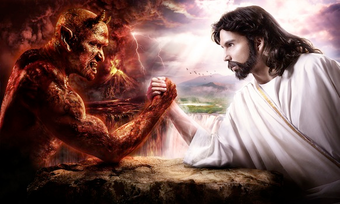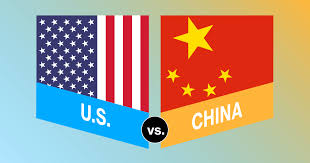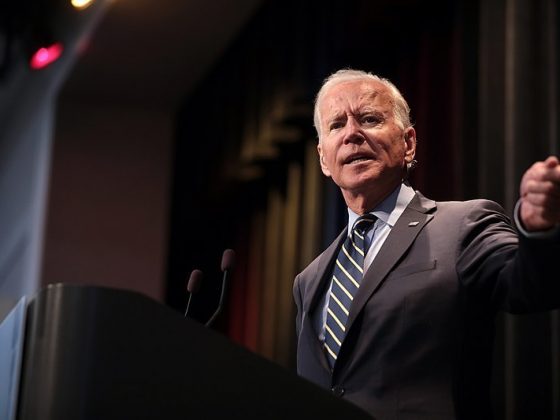Dig beneath all the trade wars and the arguments to the effect that the USA should not permit China to achieve economic and technological superiority, or even parity, and you find the real reason behind the conflict. China is seen as challenging the West’s ideology of democratic neo-liberal capitalism. China, with its communist-in-name-only government and its demonstrable social and economic progress, is seen as having the potential to offer a governmental system more attractive to the majority of mankind.
The USA is approaching the problem of the Chinese challenge in three ways. Firstly there is the trade war, economic sanctions, and disruption of a globalized trading system that has been found to have worked to China’s benefit. This approach looks unpromising and set to harm the USA every bit as much as China in the short term and, in the longer, considerably more than China.

Secondly, though there is no reason for, or evidence that China intends aggressive military moves outside its national peripheries, the USA is attempting its military containment through encircling alliances. When push comes to shove and the USA’s encircling ‘allies’ are faced with stark economic choices between the growing magnetism of the Chinese economy on their doorstep and that of the deeply troubled and far-away USA, its allies are likely to disappoint Washington.
Any attempt to invade Chinese territory is going to be even (much) more costly than ‘containment’ and even less likely to succeed. The vain military endeavours will prove both an expensive waste of US treasure and socially disruptive, making it that much harder for the USA to compete.
Thirdly, there is the propaganda war; the battle for hearts and minds throughout the globe. Here, the USA’s western alliance has a clear advantage. Its free-enterprise, privately owned social and main-stream media is understandably hostile to changes in a status quo from which the proprietors derive their livelihoods. Western media ownership is entirely in sympathy with the ‘rules-based-international system’ as created and interpreted by the West. As such, it is readily cooperative with the secret intelligence services and psyop agencies of the West in their US-led confrontation with China.
American attempts to subvert Chinese citizens in Xinjiang and Hong Kong, have been successfully countered by the Chinese Government (CCP.) Now, the west’s propaganda assault is concentrated on the leadership cadres and populations of other nations. It is a two-pronged campaign: the first is the global dissemination of unfavorable and often falsified views about the reality of Chinese intentions, actions and strengths. The second is to disseminate favourable and unrealistic views of Western virtues and strengths. The strengths that the USA wishes to emphasise are the virtues of western ‘democracy,’ over Chinese ‘authoritarianism’ and the advantages of the current rules-based-system over any revision of its workings that might be proposed by the CCP. Countries that fail to accept this world view are likely to get whacked militarily and/or economically.

This is what ‘Foreign Policy, the extremely influential mouthpiece of the USA’s Committee on Foreign Relations, has to say on the matter:-
“There is an undeniable ideological dimension to U.S.-China competition, and Washington should embrace it. If these were just morally equivalent great powers jockeying for position, then other nations, even traditional U.S. allies in Europe, would be reluctant to choose a side.
The United States and China are not morally equivalent. The United States is the leader of the free world and the principal architect of a rules-based international system that has brought the world 75 years of unprecedented peace, prosperity, and freedom. China under the CCP is a revisionist autocracy vying to disrupt and displace this system.
If it succeeds, the consequences could include increased conflict and decreased standards of living and human rights within the CCP’s sphere of influence and, over time, globally. This competition is about more than power politics—and freedom-loving people worldwide should recognize they have a direct stake in its outcome.” Foreign Policy
The most accurate of the claims made above is that ‘The United States and China are not morally equivalent.’ The rest is fantasy.
The ‘75 years of unprecedented peace, prosperity, and freedom’ referred to in the piece, apply mainly to the still hegemonic, American and European colonial powers. Their enjoyment of peace has been at the cost of placing the whole world, including their own populations, at perpetual risk of nuclear destruction. Beneath nuclear umbrellas, the white nations have been able to rest easy, while feeling free to wage military and/or economic warfare against other nations unable or unwilling to obtain a nuclear deterrent and/or seek protection under another’s umbrella. Under the rules-based-system, peace is mainly for the strong and their protégés. Below is an extract from a recent Scoop article that well illustrates the ‘prosperity’ and ‘peace’ resulting from the USA’s deliberate non-observance of the current rules:
“ … they have allowed the worst offender to steal an imagined short-term economic advantage by unilaterally tearing up the Paris agreement on climate change. Likewise, the JCPOA, designed to ensure that Iran would not develop nuclear weapons and in return, that its population would be spared crippling economic sanctions, was unilaterally binned by the ‘leader’ of our rules-based-order. Under the present set of rules, torture, assassination, subversion of other nations’ governments, the calculated instigation of hostilities and insurrection through false-flags and the deliberate misleading of public opinion, can be, and have all been carried out with impunity.
These rules have allowed the invasions of Afghanistan, Iraq, Syria, Yemen, Serbia, Libya, knee-capping by Israeli snipers of hundreds of Palestinian protesters and the displacement of millions of refugees. The system allowed the dropping of 7.5 million tons of bombs on the peoples of Vietnam, Laos and Cambodia, and continues to allow untold, long-range terrorisation of populations and sudden death from invisible drones. They allow for the manipulation of the global monetary system to enforce economic sanctions thereby, effectively impairing the livelihoods, health and happiness of a significant percentage of the global population….’Rules-based-system
As for ‘prosperity,’ that is for the wealthier citizens of the almost exclusively ‘white’ (exceptions, S. Korea and Japan) 37 nations that comprise the OECD. There is no shortage of information to be had through a Google search of ‘World poverty.’ One of the interesting sites is Poverty Bear in mind that it is the Chinese government, while, in contrast to western nations, sticking conscientiously to the existing rules, that has recently lifted 800 million of its citizens out of extreme poverty. Through China’s trade relations, many millions more, who are not Chinese citizens, have been rescued from extreme poverty. China has dropped no bombs on anyone while achieving this exemplary statistic.
In the meantime, the vast majority of humanity is condemned to endure less than prosperity. To a significant degree, this is thanks to the emasculation of the UN, economic exploitation and the conflicts instigated by the USA’s capitalist elites and their compradors. The West does not hesitate to ignore international law and waive the rules of its rule-based-system when found inconvenient.
In light of the above, the recent Black Lives Matter riots and the storming of the Capitol by a right-wing mob of white ‘patriots,’ it is hard for the US to present itself as responsible for a model form of government that other nations would wish to follow. It is true that ‘the United States is the leader of the ‘free world and the principal architect of a rules-based international system.’ It is not true that the system ‘has brought the world 75 years of unprecedented peace, prosperity, and freedom.’
This ‘freedom’ of which Foreign Affairs boasts is a matter of perspective. In American terminology it appears to mean minimizing restrictions on the individual’s ability, be he dictator or tycoon, to extract personal benefit at the expense of others. In Chinese terminology ‘freedom’ would appear to mean that all members of the community live under the law, secure from war, crime and grinding poverty. If we look more closely at the outcomes of the Chinese system we have to agree with Foreign Affairs that there is indeed ‘no moral equivalence between the two systems.’
The two systems originated under two completely different cultures. In the West, the Anglo-Saxon tradition of individualism and competitive, militant entrepreneurship produced a democratic system based on conflict between parties. In China the far longer established, Confucian tradition produced a culture of communalism, with the search for consensus as a common good. Unsurprisingly, the two cultural traditions have produced completely different political systems. Part II of this blog will explore those differences.
To compare the success of the two systems in meeting the needs of their people it is instructive to read the results of this survey on China conducted by Harvard. Satisfaction
Comparison with the Harvard findings is instructive when viewed against this recent survey conducted by the US Congress of its own approval ratings. America
No wonder some western ruling elites feel nervous about their security of tenure!



